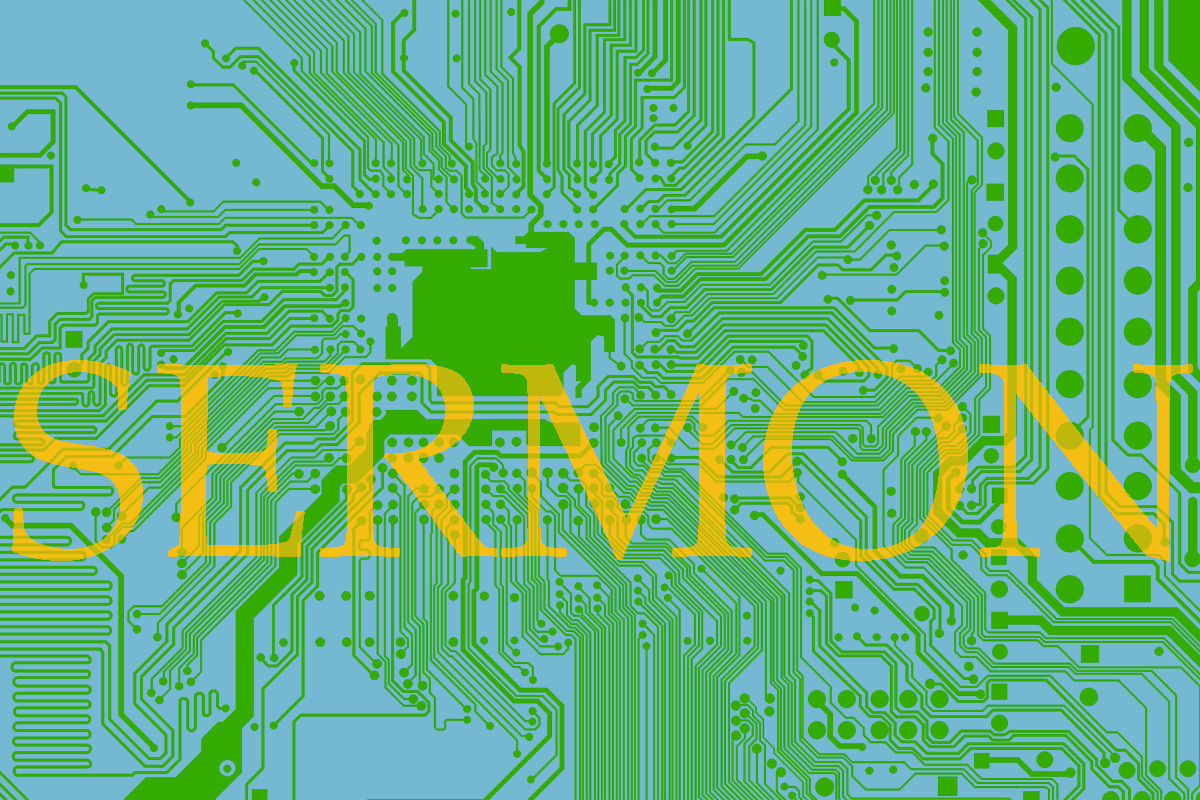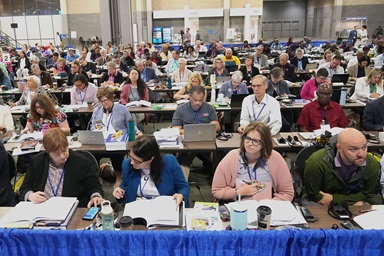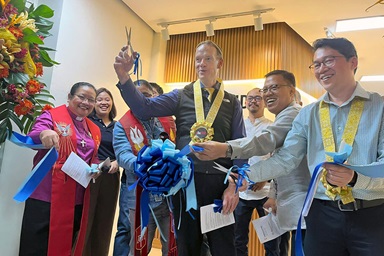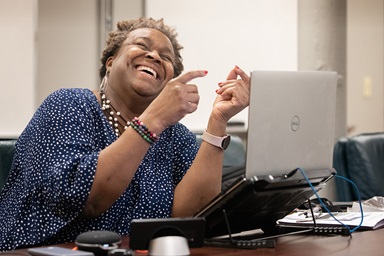Key Points:
- Artificial intelligence is in the news at the moment, with debates ongoing over how well it can do creative activities that have been the province of humans.
- A pastor in Austin, Texas, did an entire church service generated by AI as an experiment.
- The Austin congregation was glad to test the technology, but is not enthusiastic about making a habit of it.
Artificial intelligence technology, the subject of buzz and anxiety at the moment, has made its way to religion circles.
Pastor Jay Cooper, who heads Violet Crown City Church, a United Methodist congregation in Austin, Texas, took AI out for a spin recently at his Sept. 17 worship service.
The verdict? Interesting, but something was missing.
“They were glad we did it,” Cooper said of his congregation, “and let's not do it again.”
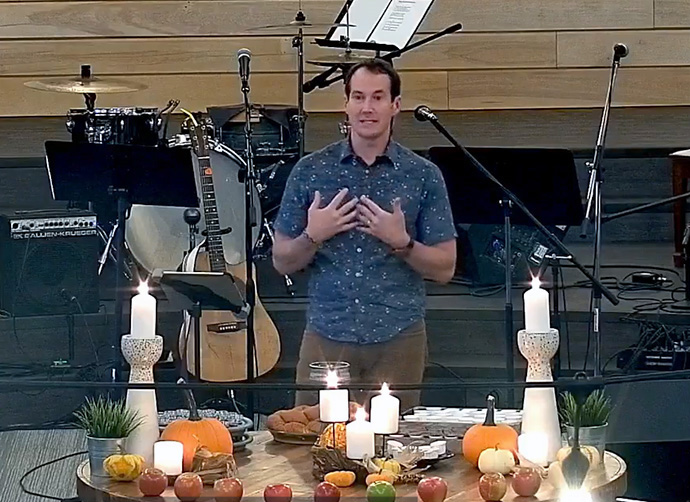
Cooper used ChatGPT to put together the entire worship service, including the sermon and an original song. He said the result was “a stilted atmosphere.”
“The human element was lacking,” he said. “It seemed to in some way prevent us from connecting with each other. … The heart was missing.”
AI “leverages computers and machines to mimic the problem-solving and decision-making capabilities of the human mind,” according to the IBM website. It has been around since the 1950s, and is used to power web search engines and self-driving cars, can compete in games of strategy such as chess, and create works such as songs, sermons and prose by using data collected on the internet.
AI-based software transcribed the interviews for this story. The remaining Beatles created a new song, “Now and Then,” using AI to extract John Lennon’s vocals from a poorly recorded demo cassette tape he made in the 1970s.
“The CEO of Google said that this is bigger than fire, bigger than electricity,” said the Rev. James Lee, director of communications for the Greater New Jersey and Eastern Pennsylvania conferences. “I really believe that … this is going to be how we do everything within the next five to 10 years.”
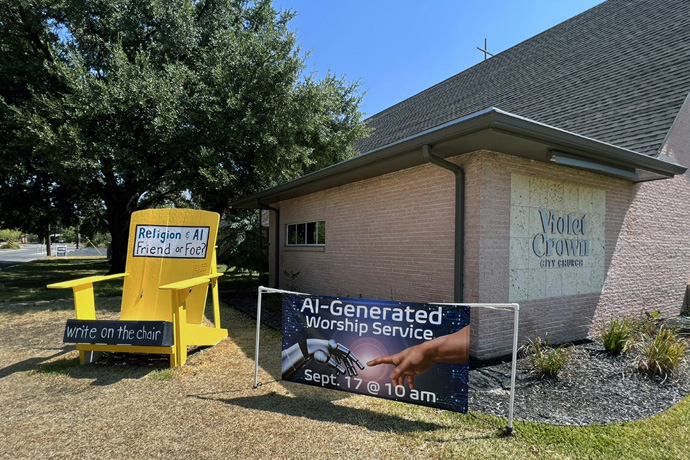
Cooper said he has “strong feelings” against using AI to write a sermon again.
“Even if it's not as eloquent or if it's a little messy or last minute, it needs to be from the heart of the pastor.”
Lee concurs. “ChatGBT is pretty bad at writing good sermons. That's my own opinion, but they're very vanilla,” he said.
Philip Clayton, Ingraham Professor of Theology at Claremont School of Theology, said that religion tends to be slow to pick up on new technology.
“I think our fear of technology is not a good thing, especially when we're trying to attract younger people to be involved in churches,” he said.
“AI is a means to get something done, like using a typewriter years ago,” he added. “For us as Christians, the key question is, ‘Do the means become the end?’”
Subscribe to our
e-newsletter
A sermon is an attempt to speak the word of God to people of God assembled at a particular time and place, Clayton said.
“It takes prayer, it takes the knowledge of the people, it takes allusions to my community in my country and all kinds of frameworks,” he said. “If I don't do that task, what have I carried out? What are my responsibilities as one who rightly divines the word of God?”
Lee suggests treating AI technology “as an intern.”
“They are able to do a lot of work for you and support you, and almost treat them like an additional member of the team,” he said.
The Rev. Stacy Minger, associate professor of preaching at Asbury Theological Seminary, believes AI could be helpful as long as the preacher does their due diligence of preparation.
“The way I teach preaching is that the preacher invests in praying over the text, reading the text and using all of their biblical studies and skills, and then they consult the commentaries or the scholars,” she said.
“If you're maybe missing an illustration or missing a transition or there’s something that just hasn't kind of come together and you're banging your head against the wall, I think at that point, after you've done all of your own work, that it could be a helpful tool.”
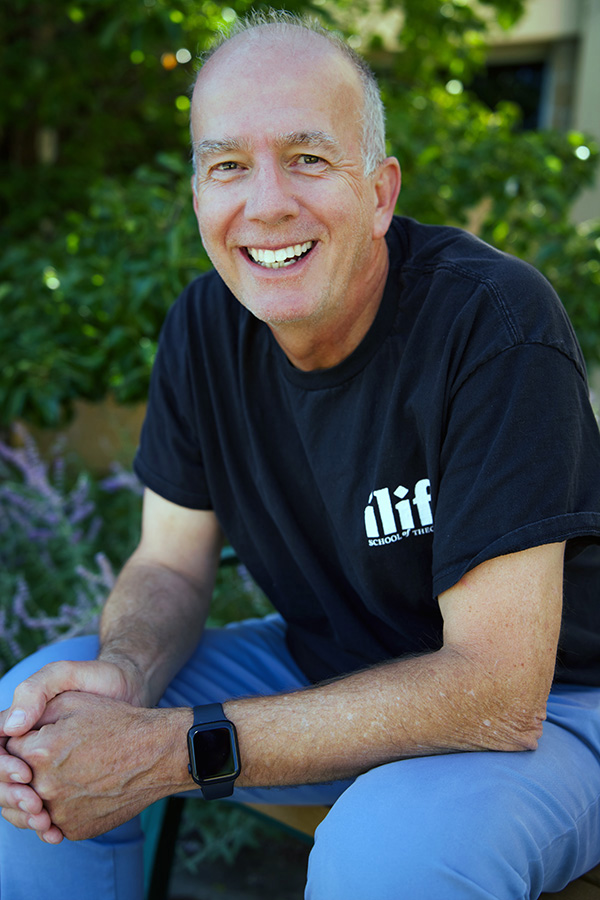
It is important to verify the work of programs like ChatGPT, said Ted Vial, the Potthoff Professor of Theology and Modern Western Religious Thought and vice president of innovation, learning and institutional research at Iliff School of Theology.
“There’s a lot of bad information (on the internet),” Vial said. “My experience with the current level of (AI) sophistication is they can produce a … clearly written and well-organized essay. … They're not very inspirational.”
AI programs do not include the most current information, he said.
“I think ChatGPT is built on data that goes through November of 2021,” Vial said. “So, if sermons are supposed to relate what's happening in the world to the Bible, it’s going to be out of date.”
Humans have emotions and creativity that are hard for a computer to emulate, he said.
But the technology continues to improve.
“Whatever humans can do, I'm pretty sure AI will be able to do it soon also,” Vial said. “So, the question isn't, ‘Would you need a human?’ … The question is, ‘Are you and your congregation OK with a service that's produced by a machine?’”
Even if the answer to that is “No,” there will be pastors who want to use it because it makes their lives easier, he added.
“If it's a personal connection between the pastor and a community, then it's important to have the pastor's voice and personality,” Vial said. “If it's exegesis of a text, there may not be anything wrong with having a computer produce it.”
Looking at it from another direction, a pastor might be cheating themselves as well as their congregation if they skip doing most of the work, Minger said.
“I would be concerned that if you're not spending that time, using all of your biblical study skills and prayerfully invested in the reading of Scripture, that you as a preacher are skipping over a wonderful formative opportunity in your own life,” she said.
“As I'm hammering out a sermon, I'm really wrestling with it,” she said. “You need images and metaphors, word choices and illustrations.
“And so, as preachers, it's not only that we would be short-circuiting the congregation, I think we would be tamping down our own creative outlets in the effort to become more efficient.”
Patterson is a UM News reporter in Nashville, Tennessee. Contact him at 615-742-5470 or newsdesk@umcom.org. To read more United Methodist news, subscribe to the free Daily or Weekly Digests.

